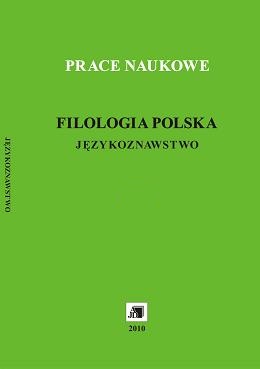Homojęzyk w homopowieści. Psychologiczno-socjologiczne aspekty języka środowiska homoseksualnego na podstawie powieści Lubiewo Michała Witkowskiego
Homosexual language in homosexual novel. Psychological and social aspects of homosexualists’ language based on Michał Witkowski’s Lubiewo
Author(s): Patrycja WOJTASIKSubject(s): Gender Studies, Studies of Literature, Psycholinguistics, Sociolinguistics, Cognitive linguistics
Published by: Uniwersytet Jana Długosza w Częstochowie
Keywords: social language; homosexual language; homosexual literature;
Summary/Abstract: In polish literature the 1990's were the beginning of homosexual motif, which turned out to be needed, so more and more publications have been concerning this socially important issue. Michał Witkowski’s coming-out released literary taboo against dissimilarities. Representation of transsexual community makes readers aware of their communication, behaviors, relationships, affairs, lifestyles and sexuality.Vulgar and colloquial language, which is present in modern literature, has all the hallmarks of lingual creativity. Lubiewo, which is an example of applying common language, in the moment of edition aroused plenty of dissenting opinions. Individual language of Michał Witkowski seemed interesting but necessity of thorough infiltration into the literary structure extorted tighter restrictions on only one instance of this polish writer’s literary output. Glossal inventiveness, stylistic originality and courage in using colloquial ang vulgar language command his writing consciousness.Language of Witkowski’s homosexuality is the hybrid of commonness, creative communications, crudeness, sexism and – paradoxically – sensitivity constitutes about its originality and artistic value.
Journal: Prace Naukowe Akademii im. Jana Długosza w Częstochowie. Językoznawstwo
- Issue Year: 2016
- Issue No: XII
- Page Range: 197-209
- Page Count: 13
- Language: Polish

